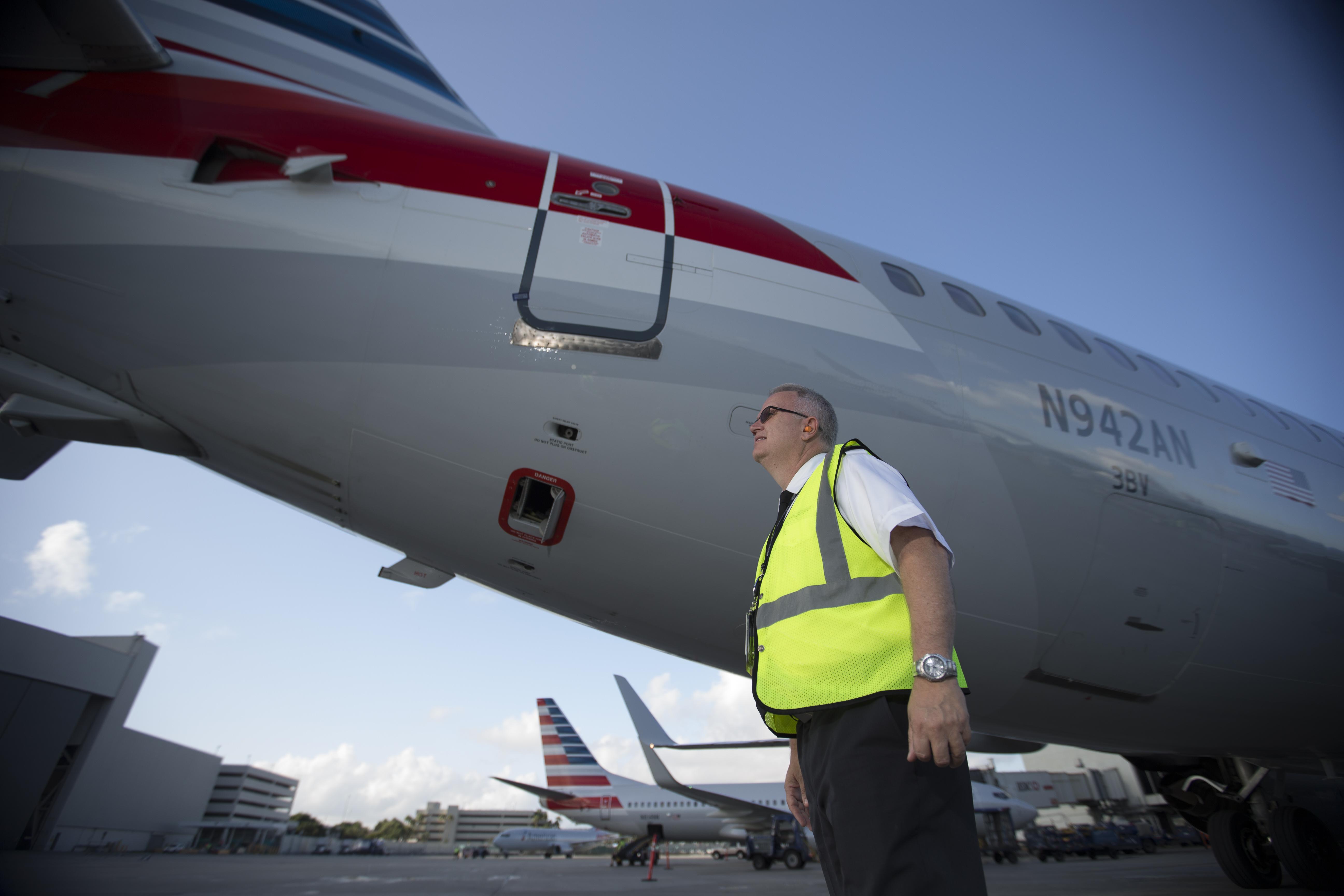American Airlines’ Rejection Of Pilots’ Early-Retirement Requests Angers Union

American Airlines and the Allied Pilots Association (APA) worked to limit the number of planned furloughs in response to lower demand, but the union says the airline opted for short-term financial gain over saving even more jobs by rejecting early-retirement requests from more than 200 pilots.
The Fort Worth-based carrier said Aug. 25 that it must furlough 1,609 pilots among 19,000 employees that will be let go in the coming weeks. The airline’s original figure was around 2,300 pilots, but 700 opted into one of several volunteer programs to help reduce required furloughs.
But American opted not to grant any early retirements, even though 204 eligible pilots submitted requests as part of the agreed-upon voluntary early-out program (VEOP). The decision means more pilots at the bottom of the seniority list are set to lose their jobs on or after Oct. 1.
“The fact that zero VEOPs were awarded is difficult for any rational person to comprehend, especially in light of senior management’s pledges to do everything in their power to avoid involuntary furloughs,” APA president Eric Ferguson wrote in a message to the pilots Aug. 25. “Both for those pilots denied their requested VEOP, and to those who may be furloughed as a result, it is nothing short of a gut punch.”
American SVP—flight operations Kimball Stone, addressing pilots in an Aug. 25 memo, acknowledged that the VEOP bidding “didn’t turn out as intended or have the desired result.”
Stone said the program, similar to one offered other workers, was extended to pilots to provide them more options. But unlike other employees, pilots have a mandatory retirement age of 65, creating the scenario where a pilot near retirement could cost the company more money via a VEOP than by continuing to work.
“We did not contemplate the high number of pilots with less than one year to retirement that bid for the VEOP, which not only negated the financial benefit of the VEOP, but in reality worsened the economic situation at a time where we can least afford additional expense,” Stone said.
Under the deal struck with APA, American could accept any number of eligible VEOP applicants from the pilot group, but it had to take them in order of seniority. The airline opted to take none.
“This is a disappointment as we all hoped that we could find a mutually acceptable solution with APA, and I believe there was opportunity to do things differently,” Stone said.
The union has a different take.
“They signed a deal they didn’t understand, and then they pulled the rip cord,” an APA spokesperson said.
American did not immediately respond to a request for comment.
Ferguson’s memo emphasized that even though some of the VEOPs many not have been economical on their own, the entire package would have helped the airline with long-term cost savings.
“Succinctly, management is foregoing tens of millions of dollars in savings that would accrue over time if all VEOPs were awarded,” he wrote. “To be clear, the choice to deny all VEOPs was that of management, alone,” Ferguson added.
Neither memo provided details about the VEOP requests.
The union in its memo indicated it would continue to work with the airline to reduce the furlough head count.
“At this stressful and critical juncture, management should reconsider its decision and change its heading into clearer skies,” Ferguson wrote. “To get there, management must entertain a new early-out option with guaranteed awards that offer real and continued furlough mitigation effects.”






Comments
Juan
'Blancolirio' You Tube.